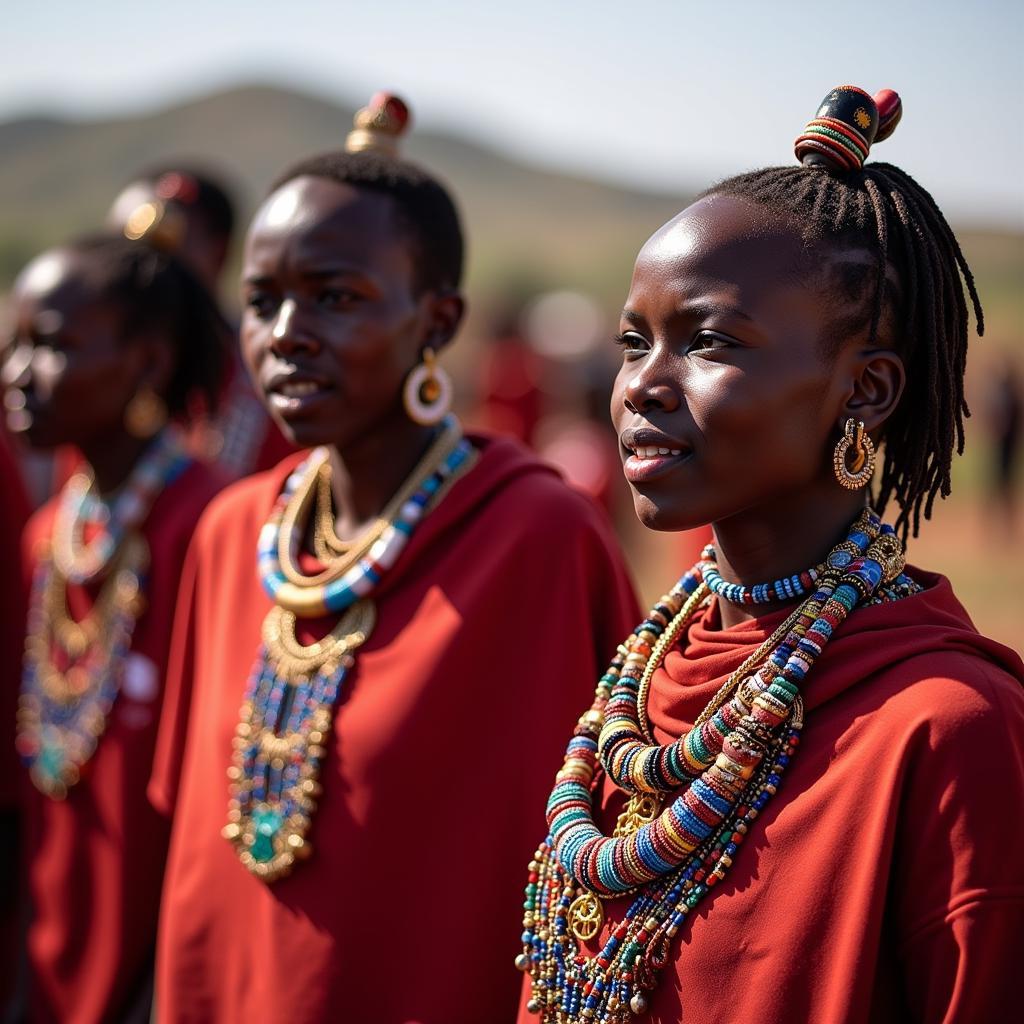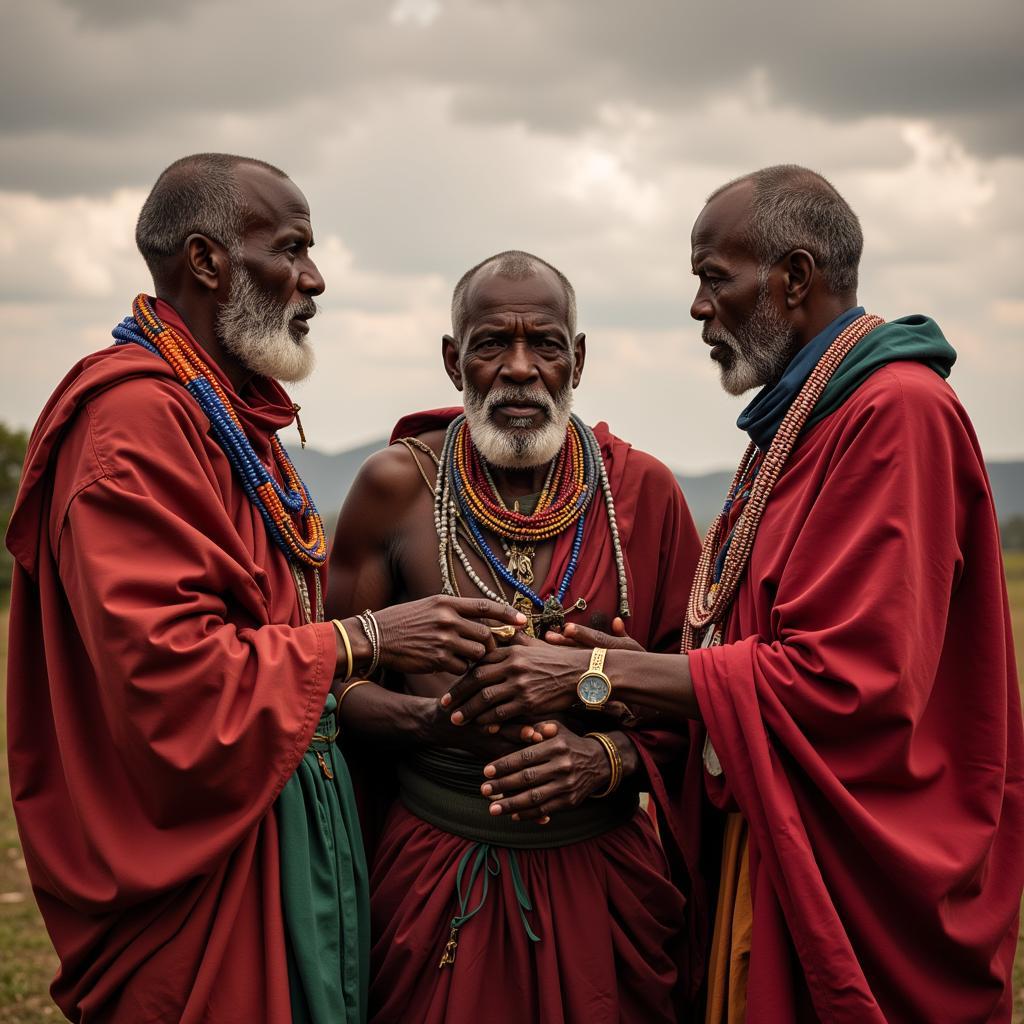The Maasai people, famed for their vibrant culture and close connection to the land, have a social structure intrinsically linked to their pastoral lifestyle. Traditional Maasai Society Is Organized According To age-set systems and clan structures, with each playing a vital role in maintaining harmony and order.
 Maasai Age Set Ceremony
Maasai Age Set Ceremony
Age Sets: A Foundation of Maasai Life
At the heart of Maasai social organization lies the age-set system, a framework that guides individuals through various stages of life, each with its own responsibilities and privileges. Every 15 years or so, a new group of boys, typically aged 12-25, are initiated into an age-set during a grand ceremony. This marks their transition from childhood to adulthood, and they remain bonded to their age-set throughout their lives.
Each age-set has a specific name, often reflecting significant events or cultural trends during their initiation period. Members of an age-set are expected to support each other, make decisions together, and share communal responsibilities such as protecting the community and livestock.
Clan System: Lineage and Identity
Beyond the age-set system, traditional Maasai society is further divided into clans, each tracing its lineage back to a common ancestor. Clan membership is patrilineal, meaning it is passed down through the father’s side. Clans provide a sense of belonging, shared history, and a support network within the larger Maasai community.
 Maasai Elders Discussing Clan Matters
Maasai Elders Discussing Clan Matters
The Interplay of Age Sets and Clans
The age-set and clan systems are not mutually exclusive but rather work in tandem to shape Maasai society. While age-sets provide a horizontal structure across generations, clans represent a vertical lineage. This intricate interplay ensures both generational continuity and the preservation of ancestral traditions.
The Role of Elders: Wisdom and Guidance
Within both age-sets and clans, elders hold a revered position. Their wisdom, accumulated over a lifetime of experience, guides decision-making, mediates disputes, and ensures the transmission of Maasai customs and values to younger generations. Elders are the keepers of knowledge, ensuring the continuity of Maasai culture in a rapidly changing world.
Adaptation and Change: Maasai Society Today
While traditional Maasai society is deeply rooted in its age-set and clan systems, it is essential to recognize that these structures are not static. Like all cultures, the Maasai are adapting to modern influences, and their social organization is evolving in response to contemporary challenges and opportunities.
Conclusion: A Resilient Culture Endures
The traditional Maasai society, organized according to its unique age-set and clan systems, showcases a remarkable blend of social structure and cultural resilience. While facing the complexities of the modern world, the Maasai continue to draw strength from their traditions, reminding us of the enduring power of community, respect for elders, and the deep connection between humanity and the natural world.